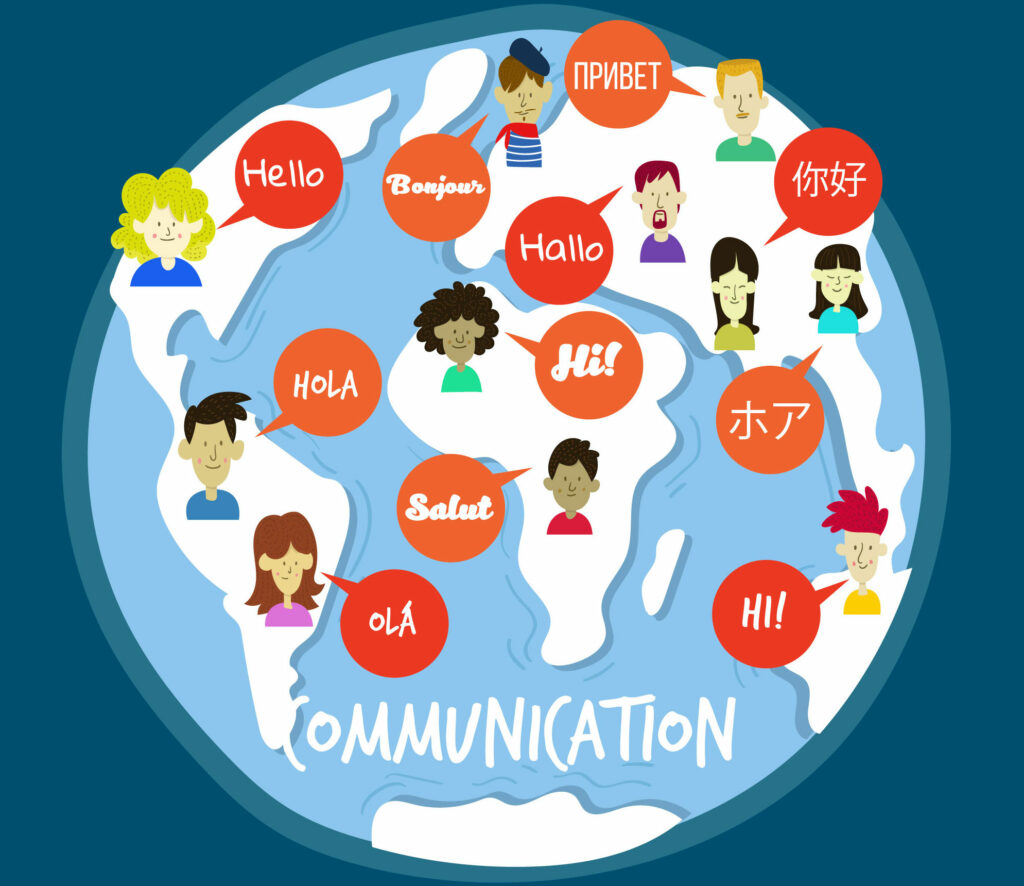Global outsourcing and outsourcing are two related but distinct concepts. While there are similarities between them, the difference lies in the scope and location of the third-party involvement. It is not a straightforward “yes” or “no” answer as the distinction depends on specific circumstances.
Outsourcing refers to a business practice where a company enlists the services of a third-party to handle tasks, and operations, or provide services that would typically be performed in-house. This can involve outsourcing a specific task, a job role, or even an entire team. The location of the third-party can vary, ranging from a local business in the same vicinity to a company situated in a different region or country.
On the other hand, global outsourcing specifically pertains to outsourcing activities to a third party located outside of the company’s home country. It is commonly known as offshoring. In this model, the third-party provider operates in a foreign country, often in a different geographical region altogether.
Therefore, the key distinction lies in the geographic location of the outsourced services. If the third-party provider is within the same country, it is considered outsourcing. If the provider operates in a different country, it falls under the category of global outsourcing or offshoring.
While both outsourcing and global outsourcing involve the engagement of third-party services, the distinction lies in the geographic scope, with global outsourcing specifically referring to the practice of offshoring to a foreign country.
In this article, we’ll show you the basics of global outsourcing.
1. What is global outsourcing?
Global outsourcing encompasses the act of engaging external entities, whether companies or individuals, located in different countries, to undertake specific business functions. The primary motivations behind global outsourcing are typically centered around cost reduction, accessing specialized expertise or technology, and enhancing operational efficiency.
This practice encompasses a wide range of work domains, including but not limited to manufacturing, software development, customer service, and administrative tasks. Over time, global outsourcing has gained significant traction due to advancements in technology that have streamlined communication and collaboration across international borders.
2. What are the advantages and disadvantages of global outsourcing?
2.1 The advantages
Global outsourcing offers several advantages for businesses, including:
Cost Savings
One of the primary advantages of global outsourcing is cost savings. By outsourcing certain tasks or functions to countries with lower labor and operational costs, businesses can reduce expenses significantly. This cost advantage can be especially beneficial for non-core activities, allowing companies to allocate their financial resources more efficiently.
Access to Global Talent
Global outsourcing provides access to a global talent pool. It allows businesses to tap into specialized skills and expertise that may not be readily available in their local market. This access to a diverse range of talent enables companies to leverage the knowledge and capabilities of professionals from different regions, enhancing the quality and innovation of their products or services.
Increased Efficiency and Focus
By outsourcing non-core functions, companies can streamline their operations and focus on their core competencies. Outsourcing tasks that are outside their area of expertise to specialized service providers allow businesses to improve operational efficiency, reduce time-to-market, and allocate resources strategically. This focus on core activities can lead to increased productivity and overall business performance.
Scalability and Flexibility
Global outsourcing offers scalability and flexibility for businesses. External service providers can quickly scale up or down their operations to accommodate changes in business requirements or market demand. This flexibility allows companies to adapt to evolving market conditions and manage fluctuations in their workload without the need for significant investments in infrastructure or human resources.
Time Zone Advantage
Global outsourcing can provide a time-zone advantage for businesses operating in different regions. By engaging outsourcing partners in different time zones, companies can extend their operational hours, leading to faster turnaround times, improved customer support, and increased responsiveness to market dynamics.
Risk Mitigation
Global outsourcing can help mitigate risks for businesses. By diversifying their operations and relying on external providers, companies can reduce dependency on a single location or market. This diversification can provide resilience against disruptions such as natural disasters, political instability, or economic fluctuations.
It is important to note that while global outsourcing offers numerous advantages, it also requires careful planning, effective communication, and diligent management to ensure successful implementation and address potential challenges such as cultural differences, language barriers, and data security concerns.
2.2 The disadvantages
While global outsourcing offers several advantages, it also comes with potential disadvantages and challenges that businesses should consider:
Communication and Language Barriers
Global outsourcing often involves working with teams or service providers from different countries and cultures. Communication and language barriers can arise, leading to misunderstandings, delays, and inefficiencies. Cultural differences may also impact work styles, expectations, and business practices, requiring extra effort to bridge these gaps effectively.
Quality Control and Oversight
When outsourcing tasks to external parties in different countries, maintaining consistent quality control can be a challenge. Businesses need to establish robust monitoring and oversight mechanisms to ensure that outsourced work meets their standards and requirements. Lack of direct control over the outsourced operations may lead to quality issues and require additional time and effort to rectify them.
Data Security and Intellectual Property Concerns
Global outsourcing involves sharing sensitive information and intellectual property with external partners. Ensuring data security and protecting intellectual property rights can be a significant concern. Companies need to establish strict confidentiality agreements, implement secure data transmission and storage practices, and carefully select trustworthy outsourcing partners to mitigate these risks.
Legal and Regulatory Compliance
Operating in different countries means navigating diverse legal and regulatory frameworks. Companies must ensure compliance with local laws, labor regulations, taxation policies, and intellectual property rights protection in both their home country and the outsourced location. Failure to adhere to these regulations can result in legal complications, reputational damage, and financial penalties.
Dependency on External Providers
Outsourcing critical functions or processes globally can create a level of dependency on external providers. If a service provider experiences financial instability, operational disruptions, or fails to deliver as expected, it can significantly impact the business’s operations, customer satisfaction, and overall performance. Managing and mitigating this dependency requires thorough due diligence, contractual agreements, and contingency plans.
Loss of Control and Flexibility
Global outsourcing involves relinquishing direct control over certain activities or processes. Businesses may experience reduced flexibility in making immediate changes or customization as they rely on external providers to perform those functions. This loss of control and flexibility can impact agility and responsiveness to market changes and customer demands.
It is crucial for businesses to conduct thorough risk assessments, establish clear contractual agreements, maintain open communication channels, and implement effective project management practices to mitigate these disadvantages and ensure successful partnerships.
3. Who Benefits from Global Outsourcing?
Businesses
Companies of various sizes and industries can benefit from global outsourcing. Small and medium-sized enterprises (SMEs) can access cost-effective resources and specialized expertise that might otherwise be inaccessible or unaffordable. Large corporations can leverage this model to streamline operations, optimize costs, and focus on core competencies. Outsourcing can enable businesses to expand their capabilities, enhance efficiency, and gain a competitive edge in the market.
Consumers
Global outsourcing can lead to cost savings for businesses, which can then be passed on to consumers in the form of lower prices. This can make products and services more affordable and accessible, improving consumer purchasing power. Additionally, outsourcing can enable companies to enhance the quality, variety, and innovation of their offerings, leading to improved customer satisfaction and experiences.
Employees
While there may be concerns about job displacement due to outsourcing, global outsourcing can also create employment opportunities. It allows businesses to allocate resources strategically, enabling them to invest in areas that drive growth and innovation. This, in turn, can lead to job creation in other sectors or industries. Moreover, outsourcing can provide opportunities for skill development and specialization, both for domestic and international workers.
Outsourcing Service Providers
Global outsourcing creates opportunities for service providers in countries with competitive advantages, such as lower labor costs or specialized skills. Outsourcing companies can grow their business, expand their client base, and generate revenue by offering their services to clients worldwide. This can contribute to economic development and job creation in the outsourcing provider’s country or region.
Global Economy
Global outsourcing can promote economic interdependence and international trade. It allows countries to leverage their comparative advantages, fostering specialization and efficiency. This can lead to increased global productivity, economic growth, and wealth creation. Additionally, outsourcing can facilitate knowledge and technology transfer across borders, contributing to global innovation and collaboration.
It is important to note that the benefits of global outsourcing are not evenly distributed, and challenges related to job displacement, income inequality, and social impact need to be addressed. Governments, businesses, and other stakeholders must work together to ensure that the benefits of it are maximized while mitigating its potential drawbacks.
4. How does Domestic Outsourcing Differ from Global Outsourcing?
Domestic outsourcing involves companies hiring a third-party organization within the same country to handle their business operations. On the other hand, global outsourcing occurs when companies engage third-party agencies located outside their country for business tasks such as IT processes, manufacturing, and customer support.
Global outsourcing offers distinct advantages over domestic outsourcing in certain aspects:
- Cost Efficiency: Global outsourcing often provides greater cost savings compared to domestic outsourcing. By leveraging lower operational and labor costs in different countries, businesses can achieve significant cost advantages.
- Diversification and Innovation: Domestic outsourcing concentrates risk within the same country, making both the company and the third-party agency vulnerable to challenges in the local economy. Global outsourcing mitigates this risk by distributing operations across multiple countries. Additionally, it brings access to new talents, perspectives, and ideas, fostering innovation and diversification of approaches to business activities.
- Growth Opportunities: Global outsourcing facilitates rapid expansion by allowing companies to explore new markets and enhance business processes more efficiently. Unlike domestic outsourcing, which is limited to a single country, global outsourcing enables businesses to tap into international markets and take advantage of diverse business environments and opportunities.
It is important to note that both domestic and global outsourcing have their merits and should be evaluated based on factors such as cost, specific requirements, scalability, cultural compatibility, and strategic objectives of the company.
5. Conclusion
Global outsourcing has become a strategic tool for businesses to optimize costs, access specialized expertise, enhance efficiency, and drive growth. By leveraging global talent, companies can tap into new markets, improve their competitive position, and innovate at a faster pace. While challenges exist, businesses that navigate the complexities of outsourcing with careful planning, effective communication, and diligent management can reap significant benefits, setting themselves up for success in the global marketplace.
We -ONEXT DIGITAL- a leading IT outsourcing agency, specializing in Web & App development. If you are searching for a reliable company to outsource your needs, we are here to assist you. Our team of dedicated developers and our commitment to delivering top-notch service can propel your business to new heights. Contact us today to discover the comprehensive range of outsourcing service solutions we offer.
Read more
How To Choose The Right SEO Providers For Your Digital Success












